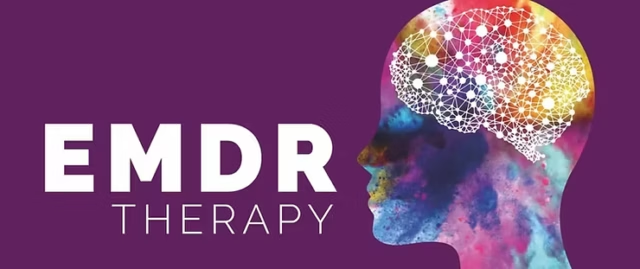Living With Anxiety: Why It Feels So Overwhelming
If you’ve been struggling with anxiety—whether it shows up as constant worry, racing thoughts, panic attacks, or physical symptoms like tightness in your chest—you’re not alone. Anxiety affects millions of people, but the experience is intensely personal. For some, it’s a quiet, gnawing feeling that never goes away. For others, it erupts unexpectedly, derailing entire days or relationships.
This article explores how EMDR therapy (Eye Movement Desensitization and Reprocessing) helps people work through the deeper roots of their anxiety—not just manage the symptoms. Whether your anxiety stems from trauma, performance pressure, or childhood experiences that never really got resolved, EMDR may be the breakthrough you didn’t know you needed.
What Does Anxiety Really Look Like?
Anxiety can take many forms, and it doesn’t always look the way you expect. You might not be pacing or panicking, but you could be:
-
Constantly thinking through worst-case scenarios
-
Struggling to relax even when nothing is “wrong”
-
Feeling overwhelmed in social or performance-based situations
-
Avoiding certain people or places without knowing why
-
Becoming irritable or reactive in your closest relationships
For one woman in her 30s, anxiety showed up as a need to control everything. She didn’t realize how much fear drove her—fear of things going wrong, rooted in a chaotic upbringing.
A local high school student experienced anxiety as nausea before school and migraines that doctors couldn’t explain. Both found relief not just through talk therapy, but also through EMDR.
What Is EMDR Therapy and Why Does It Help With Anxiety?
Psychologist Francine Shapiro originally developed EMDR to treat PTSD. Over the years, therapists have used it successfully with many types of anxiety as well. Instead of only talking about fears, EMDR helps the brain reprocess stored experiences that feel stuck in the nervous system.
During EMDR, you revisit past memories or emotional patterns in a structured, supported way. You stay grounded in the present while your brain does the work of sorting, integrating, and releasing what no longer serves you. Over time, the anxiety triggered by those memories and beliefs begins to soften.
EMDR helps because it:
-
Addresses root causes, not just surface symptoms
-
Works even when you can’t fully explain what’s bothering you
-
Calms the body as well as the mind
-
Builds emotional resilience for future stressors
Generalized Anxiety: When the Worry Never Stops
If you find yourself worrying all the time—about health, finances, relationships, or even the future of the world—you may be dealing with generalized anxiety disorder (GAD). You might be the one everyone counts on, but inside, you’re tired. You’re holding it all together, and it’s wearing you down.
EMDR can help you identify where those thought patterns began. Often, there’s a younger part of you that learned, “If I don’t worry, bad things will happen.” In session, you don’t just talk yourself out of that belief with logic. You experience what it feels like to no longer carry that burden.
One teacher in her 40s described the constant pressure of “keeping it all together.” She never let herself relax. Even on vacation, she lay awake thinking about what she’d forgotten to do. In EMDR, she uncovered childhood memories of being the “little adult” in a chaotic home. Processing those memories gave her permission to rest without guilt for the first time in decades.
Generalized anxiety often doesn’t feel like trauma, but it grows out of thousands of small, formative experiences. EMDR helps you connect the dots and teaches your brain that constant vigilance is no longer required for survival. The relief isn’t just mental—it can feel physical, spiritual, and deeply freeing.
Panic Disorder: When Fear Feels Like It Takes Over
Panic disorder doesn’t just involve anxiety—it brings sudden, intense fear that seems to come out of nowhere. A pounding heart. Difficulty breathing. A sense that something terrible is about to happen.
One college student shared how panic attacks made her terrified of driving. She felt fine one minute and overwhelmed the next. Through EMDR, she revisited a childhood memory of being locked in a car on a hot afternoon—an event she had forgotten until therapy brought it back into focus. Once she processed that experience, the panic attacks lost much of their grip.
Another client described her panic attacks as “being hijacked from the inside.” This high-functioning professional would suddenly feel like she was dying while grocery shopping or putting her kids to bed. EMDR helped her trace the attacks to unresolved grief after a sudden family loss. Her body kept remembering fear that had never fully resolved.
Many people feel shame around panic disorder and worry that others won’t understand. EMDR offers a nonjudgmental path back to safety. As your nervous system learns that it is no longer in danger, the intensity of panic often fades, and daily life becomes livable again.
Separation Anxiety in Adults: When Letting Go Feels Threatening
Most people associate separation anxiety with children, but adults experience it too—often in subtle and painful ways. You might feel overwhelming fear when your partner travels. Your child starting school might trigger panic you can’t explain. Letting go of a relationship, even a painful one, might feel like losing oxygen.
EMDR helps you trace these fears back to earlier experiences of loss, abandonment, or disconnection. One client in her late 40s came to therapy after her youngest child left for college. She felt depressed, anxious, and unable to sleep. EMDR uncovered early childhood hospitalizations that had left her feeling alone and unsafe. As she processed those memories, her current anxiety began to ease.
Another client, a man in midlife, didn’t recognize his fear of separation until he noticed how he sabotaged every serious relationship. EMDR revealed a childhood filled with frequent moves and broken attachments. Adult relationships activated that old fear of being left behind. After working through those patterns, he could finally trust love instead of pushing it away.
Separation anxiety often reflects a deep longing to feel connected and safe. EMDR makes space to grieve the past and reclaim the present without losing yourself to panic or avoidance.
Social Anxiety and EMDR: Releasing Shame and Self-Doubt
Social anxiety often grows out of experiences of shame or judgment. Maybe classmates laughed at you in middle school. Maybe a parent criticized you every time you spoke. Those memories don’t always disappear—they live in your nervous system and shape how you show up around others.
EMDR gives you a chance to revisit those moments safely and change the way they live inside you. Instead of avoiding people or replaying every conversation in your head, you can gradually feel more at ease in your own skin.
A man in his 40s shared this after EMDR: “For the first time in decades, I walked into a meeting and didn’t second-guess every word out of my mouth. I didn’t realize how much space anxiety was taking up until it was gone.”
Another young woman came to EMDR after years of blushing, stammering, and avoiding eye contact in work meetings. She wasn’t truly shy. She carried years of bullying and public embarrassment that taught her to stay invisible. With EMDR, she didn’t just find her voice—she began to enjoy using it.
Social anxiety often hides a deeper belief: I’m not safe being seen. EMDR gently reshapes that internal story. You don’t have to perform or pretend. You can show up as you are—and feel worthy of being there.
Performance Anxiety: From Pressure to Presence
Performance anxiety can show up anywhere: at work, in sports, on stage, or even in everyday situations like speaking in a meeting. It can rob you of joy and make everything feel like a test. EMDR works especially well for high-achievers who feel like their self-worth depends on results. It helps untangle the belief that failure equals rejection.
Here in San Diego County, we’ve worked with students, executives, and performers who describe a similar shift: instead of forcing themselves to push through dread, they began to enjoy the spotlight again.
One musician shared that every audition triggered flashbacks of harsh criticism from a perfectionistic parent. EMDR helped her process those painful moments so they no longer dominated her present. She started to perform with freedom instead of fear.
Another client, a young lawyer, realized his terror of public speaking came from being mocked in elementary school. Those memories had hung over him for years. EMDR lightened the emotional weight, and he finally felt able to stand up and speak.
Performance anxiety doesn’t mean you’re weak. Often it means your body still remembers what it felt like to fail when love or approval felt at stake. EMDR helps restore your ability to show up fully, not just function under pressure.
How Your Life Could Change With EMDR Therapy
Imagine waking up without a pit in your stomach. Imagine making plans without overthinking them. Picture your body at ease in spaces that used to trigger tension. Many people who complete EMDR therapy describe exactly that kind of shift.
You don’t have to fight your anxiety alone, and you don’t have to be in crisis to benefit from EMDR. If your mind or body feels stuck, this approach may offer a way forward.
EMDR Therapy for Anxiety in Carlsbad: Take the Next Step
At New Growth Counseling in Carlsbad, our EMDR-trained therapists offer compassionate, evidence-based support for people navigating many forms of anxiety. We understand how anxiety shapes lives, and we know how to help you reclaim yours.
If you or someone you love is struggling, we invite you to reach out. You deserve to feel safe, grounded, and fully present in your own life.
Disclaimer
This blog is for informational purposes only and does not constitute mental health advice or therapy. If you’re in need of clinical support, please get in touch with a qualified mental health professional—see below for ways to connect with our team.


